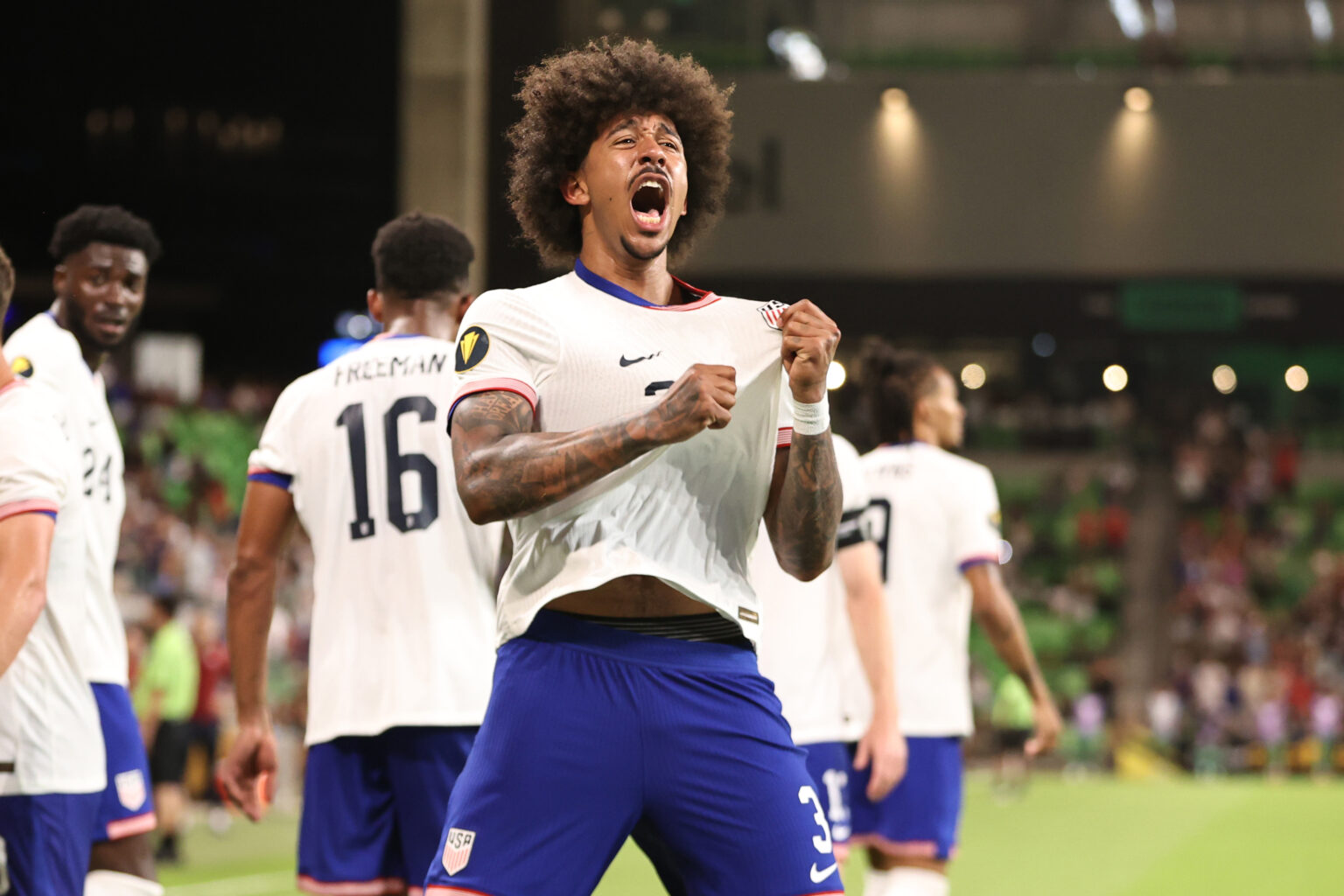U.S. Men’s National Soccer Team Secures Victory with Key Defensive Play and Strategic Adjustments
In a recent Concacaf Gold Cup encounter held at Q2 Stadium, USMNT demonstrated resilience and tactical discipline, led by standout performances from their defenders. Chris Richards, a 25-year-old center back with a reputation for defensive solidity, made a crucial impact early in the match, showcasing his ability to execute high-stakes defensive interventions.
Defensive Prowess and the Path to Victory
Richards’s first-half heroics included a remarkable sliding block that thwarted a dangerous shot from Saudi Arabia’s Abdulrahman Al-Aboud, exemplifying his commitment to the team’s defensive organization. While his defensive contributions were vital, Richards’s offensive involvement also proved decisive. In the 63rd minute, he capitalized on a well-placed free kick delivered by Sebastian Berhalter, guiding the ball into the net from close range to secure a 1-0 win for the United States.
This victory not only cemented the Americans’ position at the top of Group D but also guaranteed their advancement to the knockout stages, with a perfect record of two wins from two matches. Their upcoming fixture against Haiti will determine whether they finish first or second in the group, with the quarterfinals scheduled for June 29 at U.S. Bank Stadium in Minneapolis. Meanwhile, Saudi Arabia, participating as a guest team, remains in contention with one win and one loss, preparing for their final group match against Trinidad and Tobago.
From Dominance to Determination: Comparing Performances
Compared to their commanding 5-0 victory over Trinidad and Tobago last weekend, the U.S. team displayed a more cautious and less fluid style in this match. The first half was marked by sluggish play and a lack of cohesion, but the Americans sharpened their approach after halftime, creating more scoring opportunities and demonstrating resilience under pressure. Richards’s second goal in 27 appearances exemplified the team’s ability to capitalize on set-piece opportunities and maintain composure under challenging circumstances.
Strategic Set-Pieces and Player Contributions
Berhalter’s precise free kick from 35 yards into the penalty area was a key tactical element, catching the Saudi defense offside by mere inches. Richards’s timely finish underscored the importance of set-piece execution in tournament settings. The match also highlighted the strategic use of substitutions, with head coach Mauricio Pochettino introducing veteran midfielder Tyler Adams and promising talent Damion Downs in the 62nd minute to inject energy and stability into the midfield.
Understanding the Context of the Gold Cup and Guest Teams
The Gold Cup, held biennially, is the premier competition for North and Central American nations and Caribbean teams. However, the inclusion of guest teams like Saudi Arabia raises questions about the tournament’s evolving format. Historically, the tournament has welcomed teams from outside the region, including South Korea and South Africa, as part of broader collaborations with football confederations. Recent editions have also seen participation from Qatar, driven by agreements with the Asian Football Confederation and commercial interests, such as sponsorship deals with Qatar Airways and regional companies like Aramco and Riyadh Air.
Fan Engagement and Stadium Atmosphere
Despite the significance of the match, the attendance was modest, with only 11,727 spectators present. The combination of high ticket prices, a midweek schedule, and the perceived mismatch between the U.S. team’s recent performances and the opponent’s profile contributed to a subdued atmosphere. Nonetheless, some fans displayed banners supporting regional interests, reflecting the tournament’s commercial and diplomatic dimensions.
Team Composition and Future Outlook
Saudi Arabia’s squad was missing several key players, including Salem Al-Dawsari, due to commitments with their club, Al Hilal, at the FIFA Club World Cup. The U.S. team, meanwhile, continues to evaluate emerging talent amid a roster affected by injuries and absences. Notably, goalkeeper Matt Freese, who debuted in June, maintained his starting position, with head coach Pochettino emphasizing the importance of giving players consistent opportunities to adapt under pressure.
Looking Ahead: Path to the Quarterfinals
With their current standing, the United States is poised to host the quarterfinals in Minneapolis, provided they finish first in their group. A second-place finish would see them travel to Arizona for the knockout stage. The team’s focus now shifts to maintaining their winning momentum and refining their tactical approach as they prepare for the critical stages of the tournament.
In summary, the U.S. men’s national team demonstrated strategic adaptability, defensive resilience, and effective set-piece execution to secure a vital victory in the Gold Cup. As the tournament progresses, their ability to build on these strengths will be crucial in their quest for regional supremacy and qualification for upcoming international competitions.

